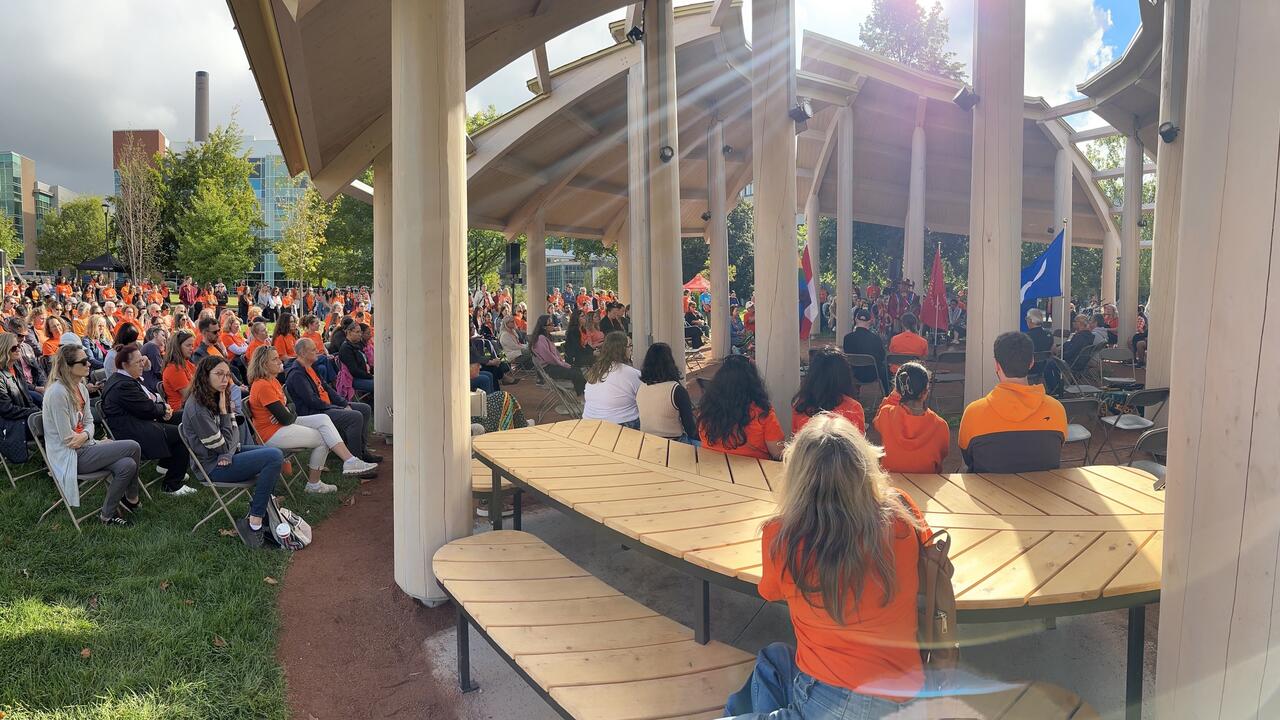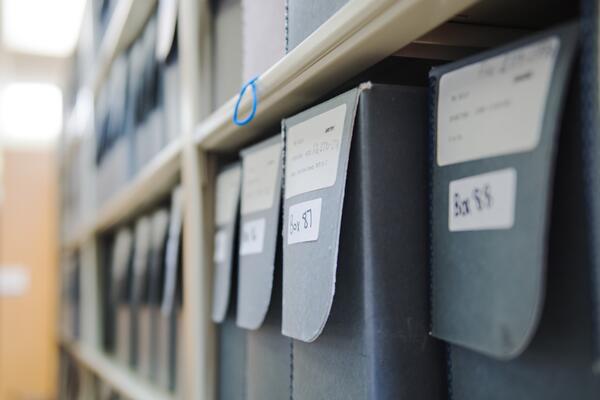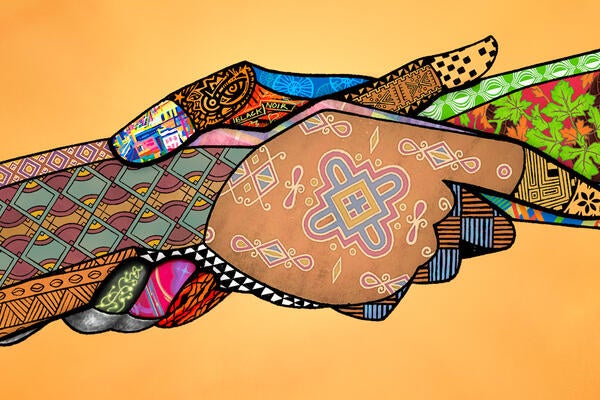
Recognizing National Day for Truth and Reconciliation
Waterloo honours children and Survivors of residential school and renews commitment to reconciliation

Waterloo honours children and Survivors of residential school and renews commitment to reconciliation
By Emily Brant Office of Indigenous RelationsSeptember 30th marked the National Day for Truth and Reconciliation — a day to honour the lost children and Survivors of residential schools, their families and communities. The University of Waterloo commemorated the day with a Sunrise Ceremony, the official opening of the new Indigenous outdoor gathering space and the annual commitment polishing ceremony. Followed by a walk around Ring Road, soup lunch, traditional drumming and a round dance.
Widespread public commemoration and acknowledgement of the tragic and painful history, continued impact and intergenerational trauma of Canada's residential school legacy are vital components of the reconciliation process.
The day began in front of the new Indigenous outdoor gathering space, located on the B.C. Matthews Hall (BMH) Green, at 7 a.m. with a Sunrise Ceremony led by Indigenous Elder and Knowledge Keeper, Myeengun Henry. The ceremony gave attendees and facilitators a chance to get grounded and connected before an emotional day and head into the events with a good mind, heart and spirit.
At 9:30 a.m., the Eagle Staff carriers, flag carriers and key participants, along with the Waterloo community, made their way into a Cedar Circle with a welcome and honour song by Iron Horse Trail singers. A smudge, prayer and thanksgiving address were offered ahead of the first speaker of the day, Jean Becker, associate vice-president of the Office of Indigenous Relations. Becker kicked off the remarks for the official opening of the new outdoor gathering space by sharing about its purpose and meaning of the space.
The new space was given a Kanyenké’ha (Mohawk) name, “Skén:nen Tsi Nón:we Tewaya’taróroks”, which means “where we all gather together peacefully.” The name was given by Kawennakon Bonnie Whitlow, Indigenous special projects officer, Office of Indigenous Initiatives at Wilfred Laurier University, who was also present for the ceremony.
“The purpose of this structure is, first and foremost, meant to be a physical representation of the continuous presence of First Nations, Inuit and Métis Peoples that are on this territory. This space will be used to teach, celebrate, gather and bring awareness about Indigenous Peoples and cultures,” Becker said.
Following Becker’s remarks, attendees had the opportunity to hear from two of the architects on the space’s design team, Ryan Gorrie and Dani Kastelein, before the ceremony transitioned into the University’s recommitment to decolonization, indigenization and reconciliation. At this point, Vivek Goel, president and vice-chancellor of Waterloo, was invited to welcome attendees on behalf of the University and offer reflections on the importance of the outdoor gathering space and broader campus vision for indigenization.
Elder Henry then invited President Goel, along with the faculty deans, to gather inside the Cedar Circle to pledge their re-commitment to reconciliation, indigenization and decolonization at the University. This ceremony was a polishing of the original commitment made by Waterloo in 2022. Prompted by Elder Henry, the Waterloo faculty deans commit to bringing decolonization into their faculty’s leadership, teaching and research.

Elder Myeengun Henry, President Vivek Goel, Jim Rush and the Indigenous community gather inside the Indigenous Gathering Space
The ceremony was followed by a pipe ceremony conducted by Elder Henry, and an honour song to retire the flags before the event transitioned into the annual remarks and an orange shirt walk around Ring Road. Soup and Bannock were served ahead of a final song by the Iron Horse Trail singers, followed by a round dance in which all were encouraged to participate.
Beyond words and pledges, we’ve seen the commitment across campus with many initiatives including: the introduction of a new 500-bed residence building that prioritizes Indigenous engagement and principles into its design, the opening of the Indigenous outdoor gathering space and the launch of a new collection from the W Store, featuring the work of local Indigenous artist Tehatsistahawi (Tsista) Kennedy, which supports the Indigenous Student Development Fund. In 2023, a tuition waiver was first introduced for members of the Six Nations of the Grand River and Mississaugas of the Credit First Nation. The number of employees at Waterloo who self-identify as Indigenous doubled between 2021 and 2023, and over the past five years, Indigenous student enrolment at Waterloo has increased by more than 50 per cent.
While truth and reconciliation are highlighted every September, Waterloo and the Office of Indigenous Relations work towards reconciliation all year round, encouraging every member of the Waterloo community to do their part as well, knowing that the work of decolonization is a responsibility we all share. As Elder Henry shared at the end of the ceremony, “Don’t just go on with your day as usual, go on with this spirit and love inside of you.”

Read more
Upside Robotics secures new funding to accelerate the future of sustainable farming

Read more
Discover the meticulous work that uncovered Black stories on campus and preserved them for the future

Read more
A message from the President and Vice-Chancellor
The University of Waterloo acknowledges that much of our work takes place on the traditional territory of the Neutral, Anishinaabeg, and Haudenosaunee peoples. Our main campus is situated on the Haldimand Tract, the land granted to the Six Nations that includes six miles on each side of the Grand River. Our active work toward reconciliation takes place across our campuses through research, learning, teaching, and community building, and is co-ordinated within the Office of Indigenous Relations.